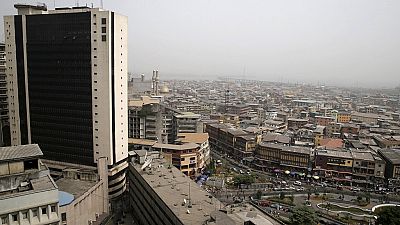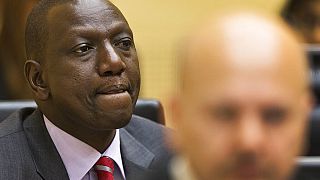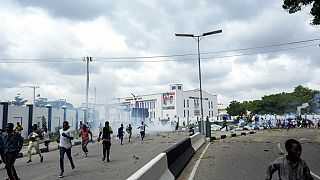Nigeria
The International Monetary Fund said on Thursday that it has cut Nigeria’s GDP growth forecast for 2016.
IMF said that economic growth for Africa’s top oil producer will decline to 2.3% from an earlier forecast of 3.2 % in February, while 2015 growth is estimated at 2.7%.
In a review of the economy, the fund said that Nigeria’s economy is facing substantial challenges from low crude prices.
“The oil sector plays a key role in Nigeria and lower oil prices have significantly affected the fiscal and external accounts, slashing government revenues to 7.8% of GDP. This has resulted in the doubling of government deficit to about 3.7 % of the GDP in 2015,” the fund added.
The fund also said that Nigeria’s exports dropped to about 40% in 2015 pushing the current account from a surplus of 0.2 percent to a deficit of around 2.4% of GDP.
The executive board of the fund expects economic recovery in Africa’s largest economy to be modest in the medium term but with significant down risks.
The board said that the risks included shortfalls in non-oil revenues, deterioration in finances of state and local governments, deepening disruptions in private sector activity due to constraints on access to foreign exchange, and resurgence in security concerns.
Exchange restrictions introduced by the Central Bank of Nigeria to protect reserves have impacted significantly segments of the private sector that depend on an adequate supply of foreign currencies.
Africa’s largest economy has come under pressure to devalue its currency in order to spur economic growth and investment.
Analysts as well as members of the central bank’s monetary policy committee have called for the devaluation of the Naira, a move that president Muhammadu Buhari is against.
According to IMF, Nigeria’s government needs to raise non oil revenues to ensure fiscal sustainability while maintaining infrastructure and social spending.
The fund urged a gradual increase in the VAT rate and broadening of the tax base. IMF further stressed the need for additional structural reforms to enhance competitiveness and encouraged Nigerian authorities to continue core infrastructure investment and further reduce the cost of doing business through greater transparency and accountability.
Reuters





![Benin: Tapping the potential of luxury tourism [Business Africa]](https://static.euronews.com/articles/stories/08/77/73/68/320x180_cmsv2_a773df46-cd22-5d35-919e-78866828bd47-8777368.jpg)








01:00
Pics of the day: October 29, 2024
01:50
Zipline partners Nigeria for improved healthcare delivery
02:02
IMF: Outlook for sub-Saharan Africa is improving but challenges remain
11:07
Africa’s growing role in BRICS: Opportunities and challenges {Business Africa}
00:38
Charges dropped: Binance executive freed by Nigerian court decision
Go to video
Is Migration the only path to success for the African youth? (Africanews Debates)